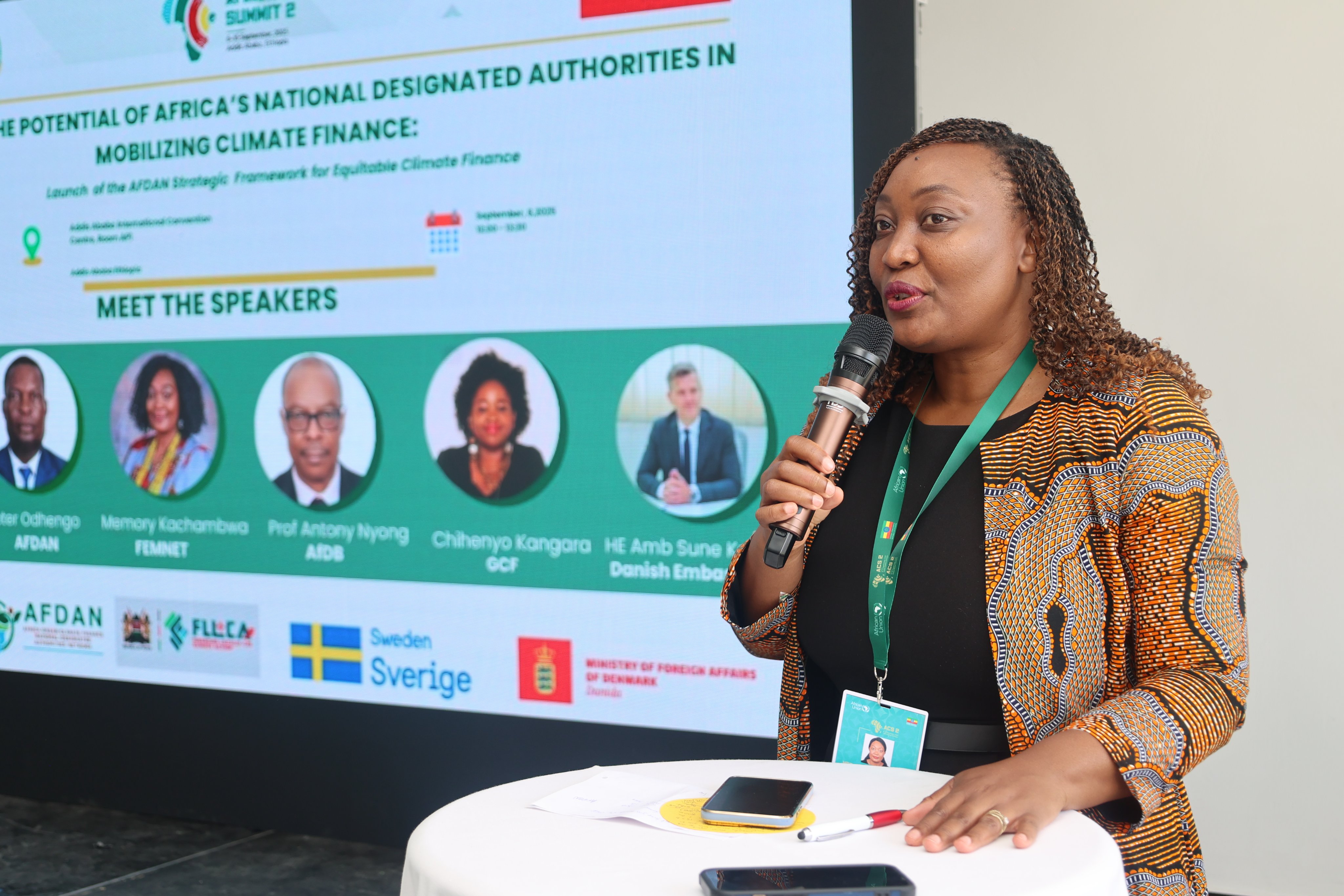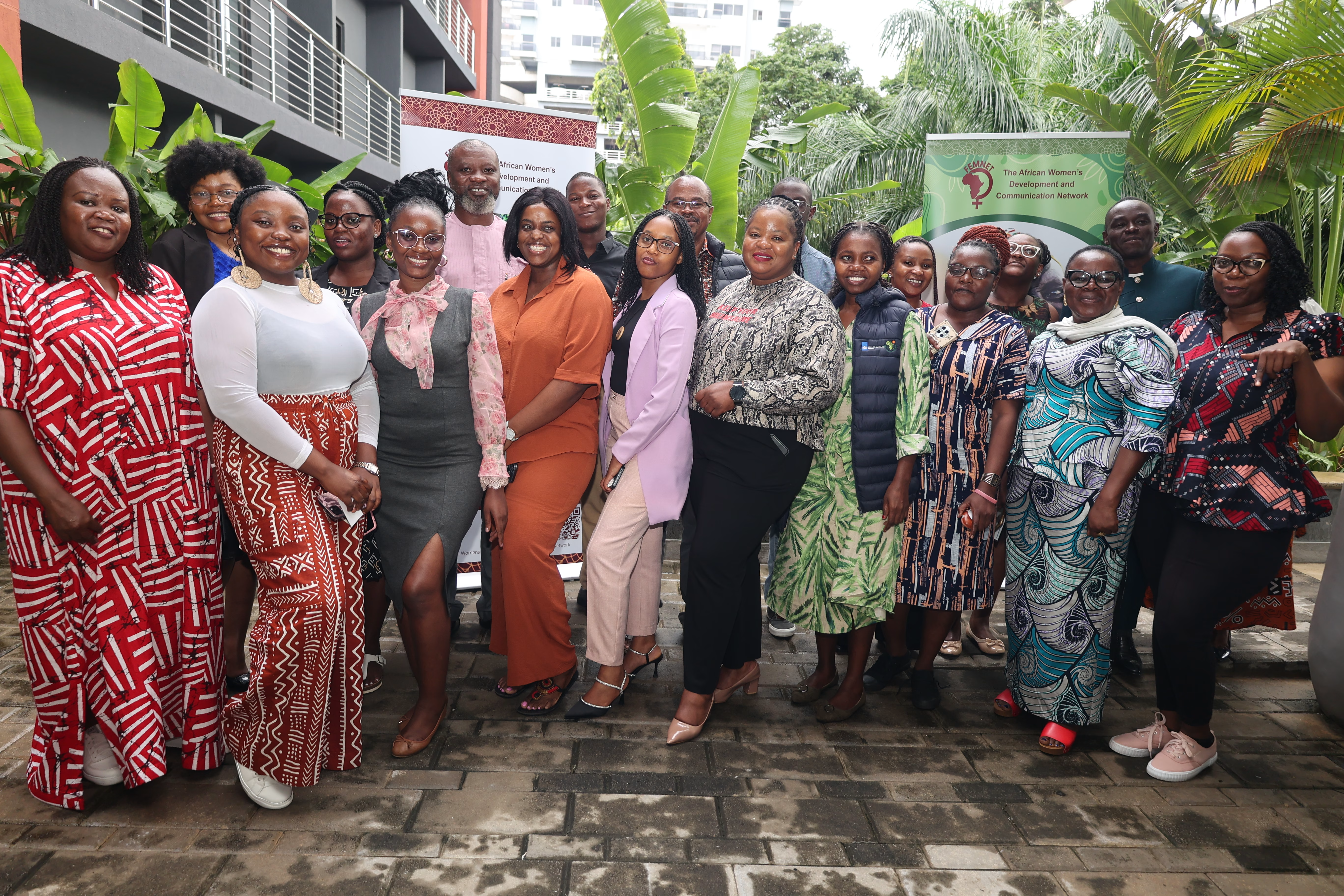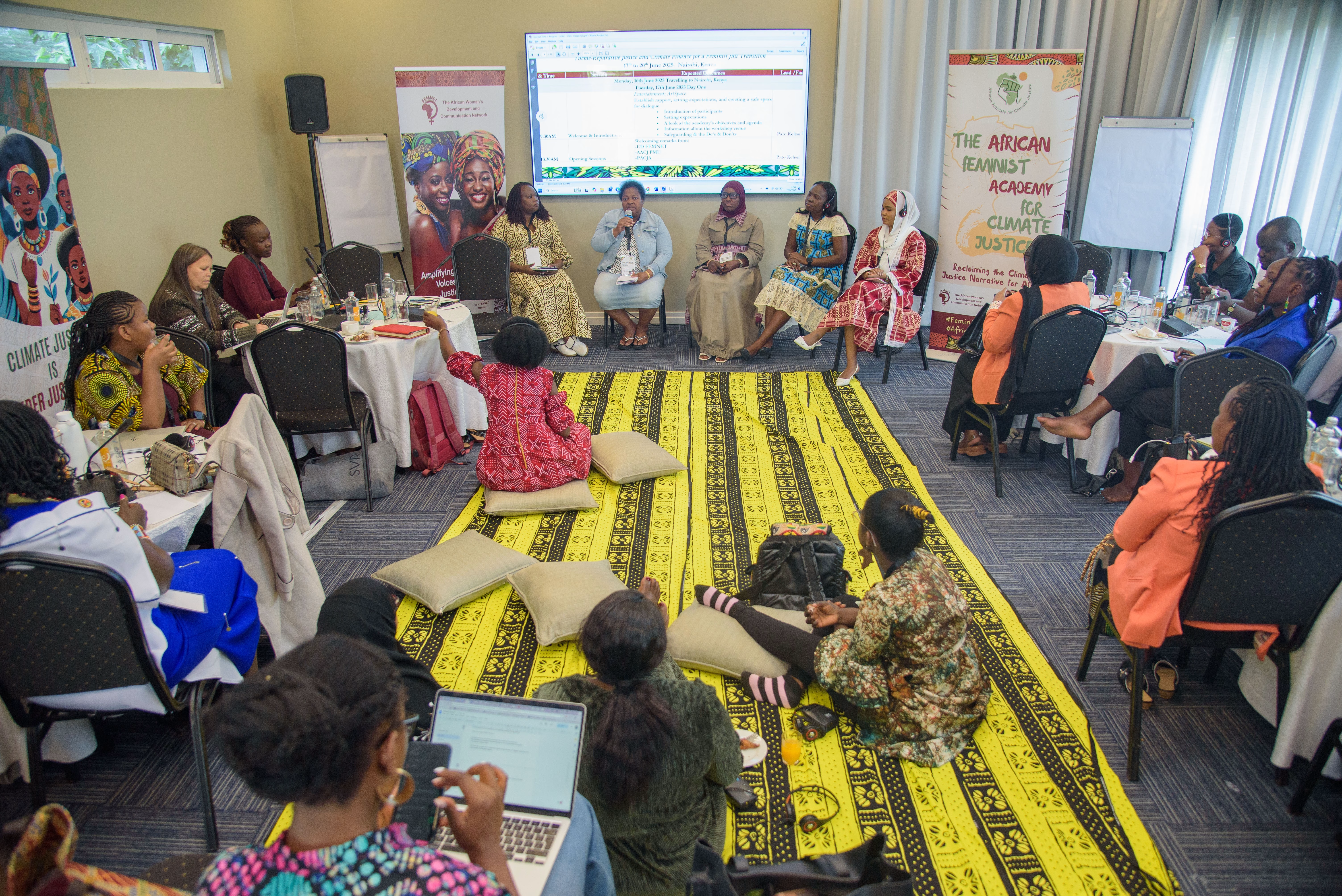
Shaping Climate Futures: Feminist Voices Rising for Reparative Climate Justice
From the moment you walked into the vibrant, lively room in Nairobi on June 17, 2025, you could feel the energy in the air—charged, expectant, and full of purpose. FEMNET’s third cohort of the African Feminist Academy for Climate Justice (AFACJ) had officially kicked off, bringing together a dynamic constellation of feminist climate champions under the theme: “Reparative Justice and Climate Finance for a Feminist Just Transition.”
Over four days, from 17th to 20th June, a powerful wave of feminist thought, advocacy, and strategy swept through the academy halls, where laughter echoed, difficult truths were spoken, and ideas sparked like wildfire. This wasn’t just another workshop. It was a living, breathing movement-in-the-making.
The Academy welcomed over 40 women and girls from across Africa, representing grassroots organizations, feminist networks, indigenous communities, youth-led initiatives, and climate justice movements. From the get-go, the atmosphere was intentional: safe, supportive, and unapologetically feminist.
During the opening session, Anne Tek, Climate Justice and Governance Coordinator from FEMNET, set the tone with a powerful reminder: “African women are not bystanders to climate change. We are first responders. We are healers. We are builders of futures. The question is not whether we belong in climate spaces—it’s how we lead in them.”
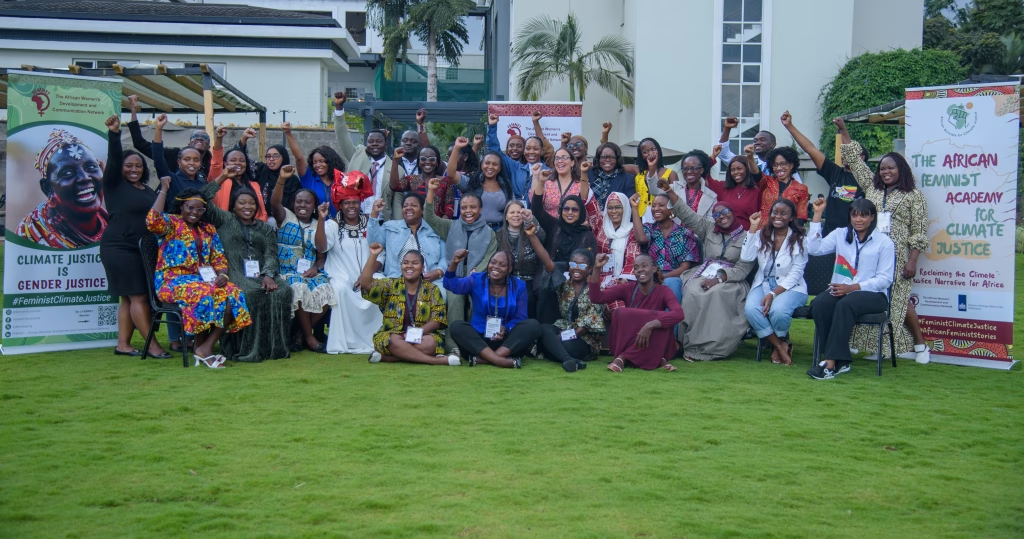
Group photo of participants during the AFACJ training.
The participants came bearing stories of droughts that dried their crops, floods that swept away their homes, and policies that continue to exclude their voices. But they also came armed with solutions, strength, and the kind of bold feminist analysis needed to truly reshape the future.
The Academy kicked off with powerful testimonies from women on the frontlines of the climate crisis, grounding the academy in lived realities. From Nigeria to Ethiopia, rural Kenya to South Africa, the stories shared made it clear: climate change is not gender-neutral, and neither can climate action be.
During the “What is the Climate Crisis?” session, Rabeb Aloui of WomenVai urged the cohort to look beyond numbers and graphs. “We must always ask—who is suffering most, and who is making the decisions? If the answers don’t include women and girls, then the system needs dismantling.”
Participants delved into global policy frameworks, from the Paris Agreement to the Gender Action Plan, and questioned: Where are the feminist voices? Why are communities still excluded from decision-making processes?
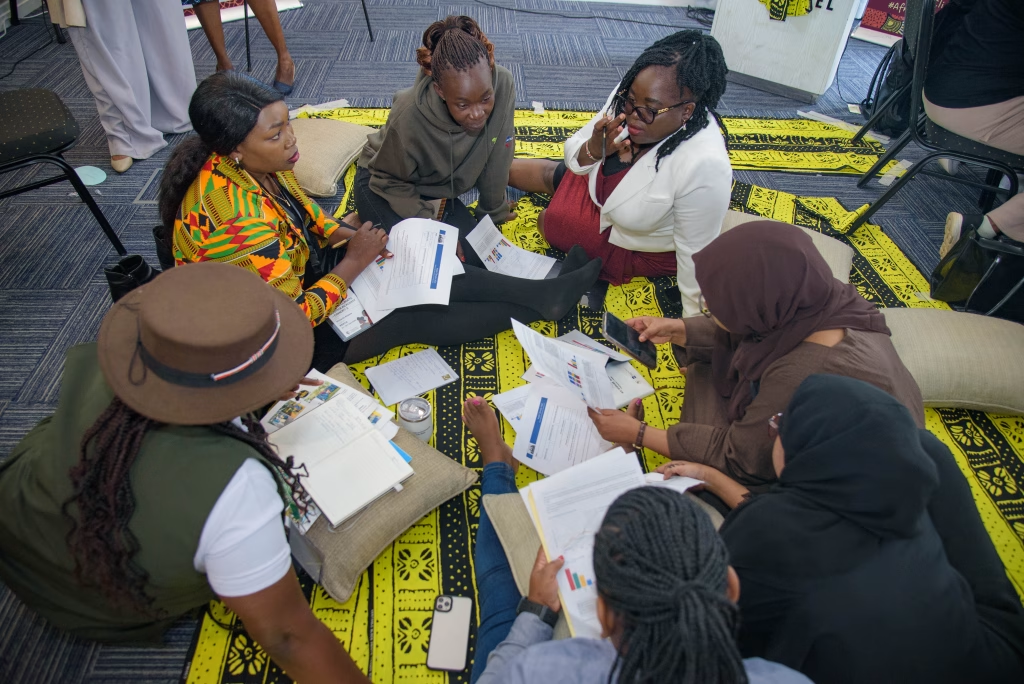
Day Two zoomed in on climate finance, an area riddled with jargon, inaccessibility, and inequity. Faith Lumonya from Akina Mama wa Afrika (AMWA) broke down the complexities of adaptation, mitigation, and carbon markets. “Climate finance,” she said, “cannot just be about numbers. It must be about justice. Reparations. Redistribution. Restoration.”
Victoria Atieno, a youth climate activist from Kenya, reflected: “I always thought finance was for economists and donors. But today, I understand that finance is feminist. It’s about power—and we must claim it.”
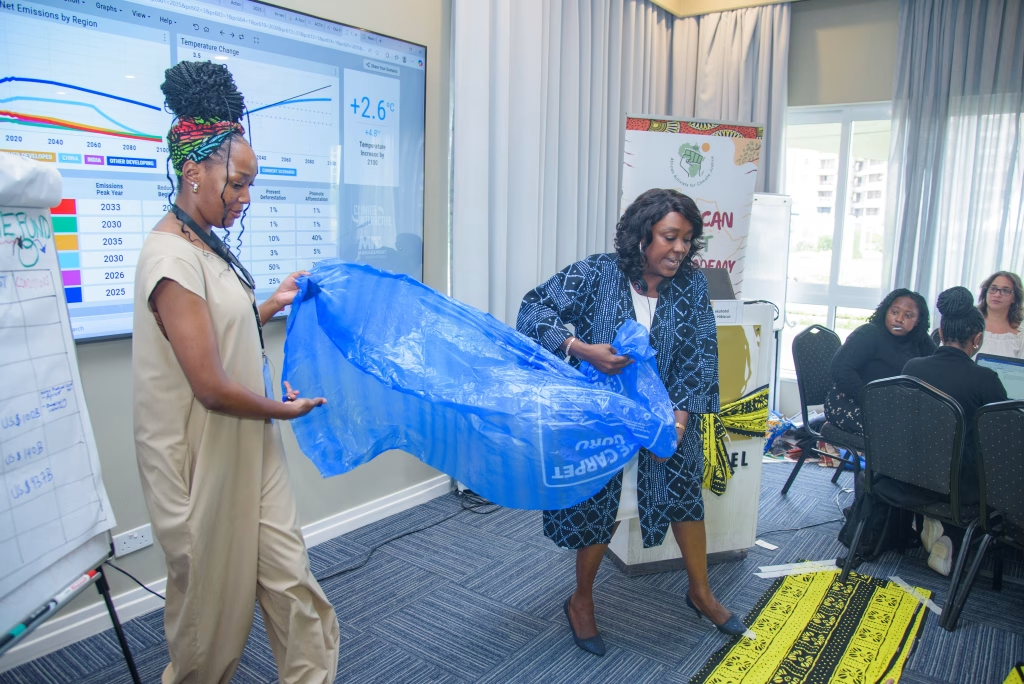
From policy dialogue to praxis, Day Three was all about movement building. Ruth Nyambura, from the Africa Ecofeminist Collective, challenged the group: “Feminists have always had the answers—community care, sustainability, shared leadership. A just transition is not new to us. It’s rooted in our indigenous knowledge and our resistance.”
The field visits brought theories to life. Participants engaged directly with grassroots women’s groups implementing climate solutions—from clean energy projects to seed-saving initiatives. These real-world experiences solidified the Academy’s mission: to transform knowledge into action. A good example is how Kibra youth are turning trash into treasure.
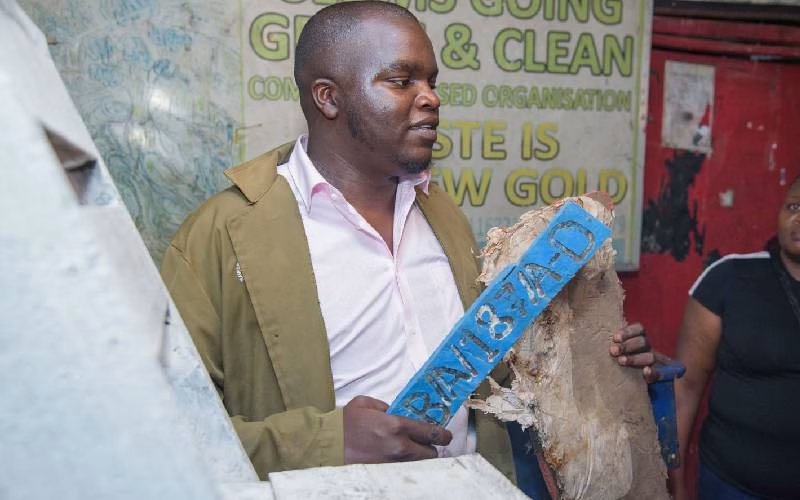
Brian Gisore Nyabuti, founder Slums Going Green and Clean during a session with FEMNET group on June 19, 2025.
“These youths are doing climate justice work,” says Anne Tek, Climate Justice and Governance Coordinator at FEMNET, during the visit. “They are feminists. They are environmentalists. They are frontline warriors.”
With COP30 on the horizon, participants developed action plans, refined advocacy strategies, and mapped out how to ensure feminist demands are heard loud and clear on global stages.
Baboucarr Nyang from Climate Action Network Africa offered a sobering reality: “If feminists are not in the room when climate deals are made, the deals will not serve us.”
As action plans were laid out, Emilia Hatendi from Zimbabwe declared: “I came here uncertain about my place in climate advocacy. I leave here not only with clarity, but with a sisterhood, a strategy, and a fire that cannot be put out.”
In true FEMNET fashion, the closing wasn’t a goodbye—it was a beginning. The African Feminist Academy for Climate Justice continues to be a space where knowledge is not just shared, it is co-created. Where voices are not just heard, they are amplified. Where climate justice is not just envisioned, it is led, shaped, and sustained by African women and girls.
And as we gear up for COP30, one thing is clear: the feminists are not coming. We’re already here. And we’re shaping climate futures.
Related Posts
FEMNET at the Africa Climate Summit 2025: Centering Women’s Power for Just Climate Futures
Setting the Stage in Addis Ababa The Africa Climate Summit 2025 (ACS2), held in Addis Ababa, Ethiopia, was
Learn MoreRewriting the Climate Story: Journalists Trained to Champion Feminist Climate Justice in Africa
What if climate stories from Africa didn’t begin with crisis, but with courage? What if women were no
Learn More
